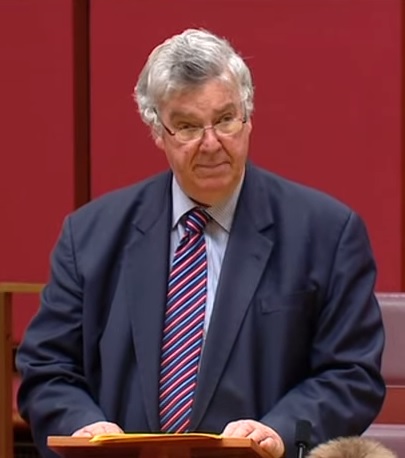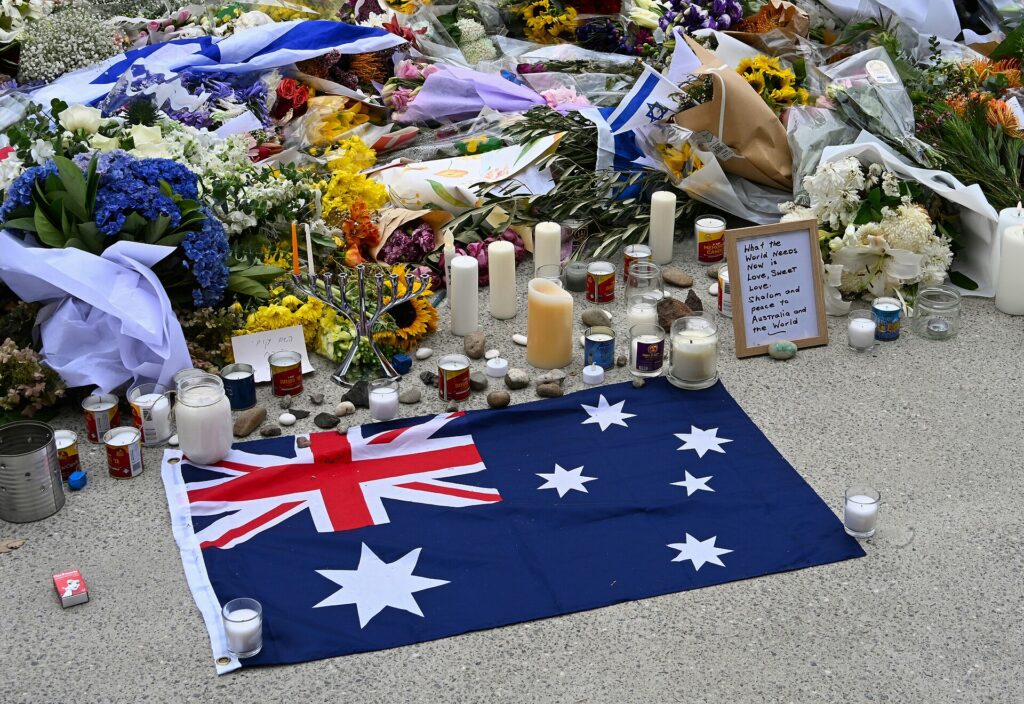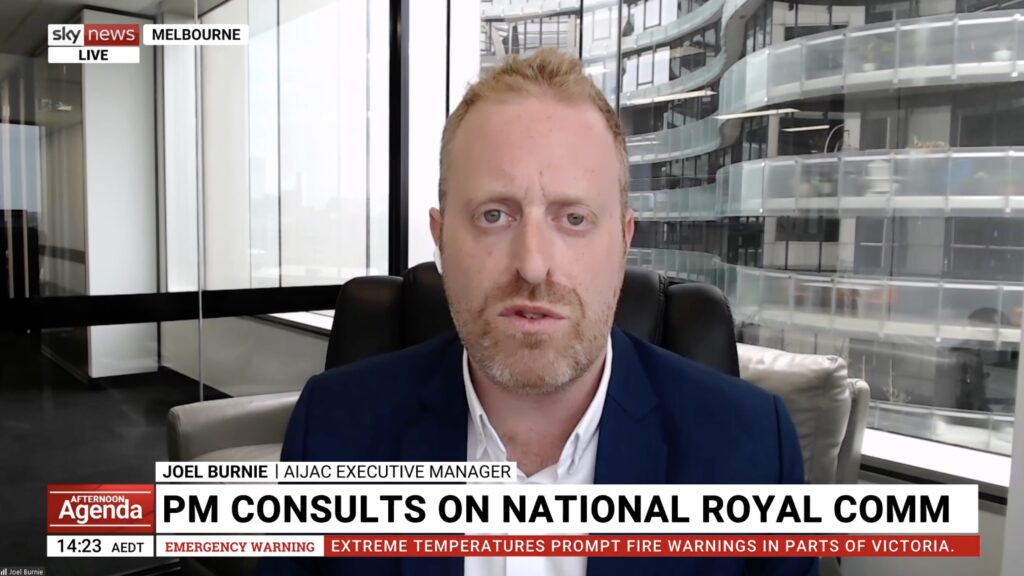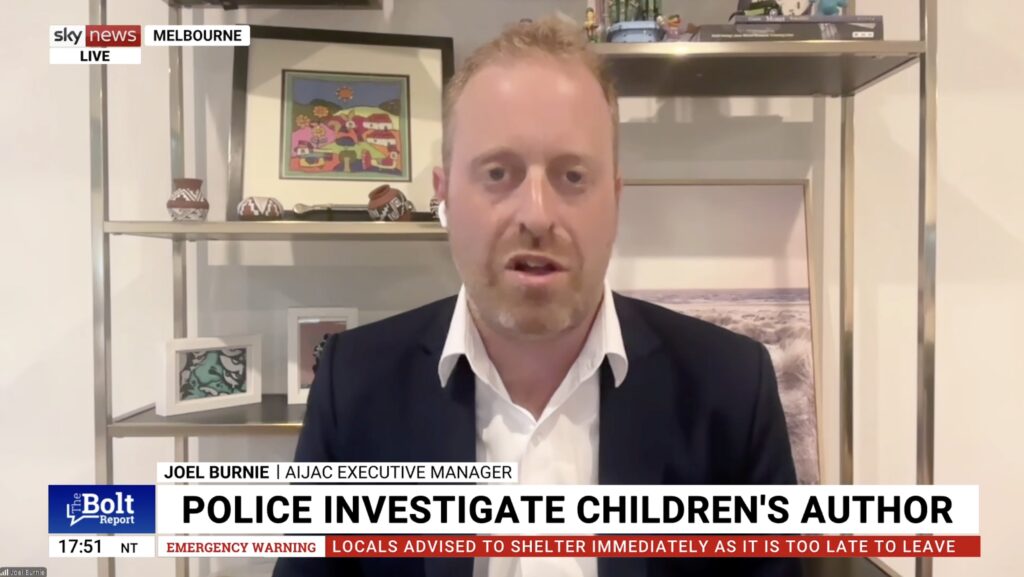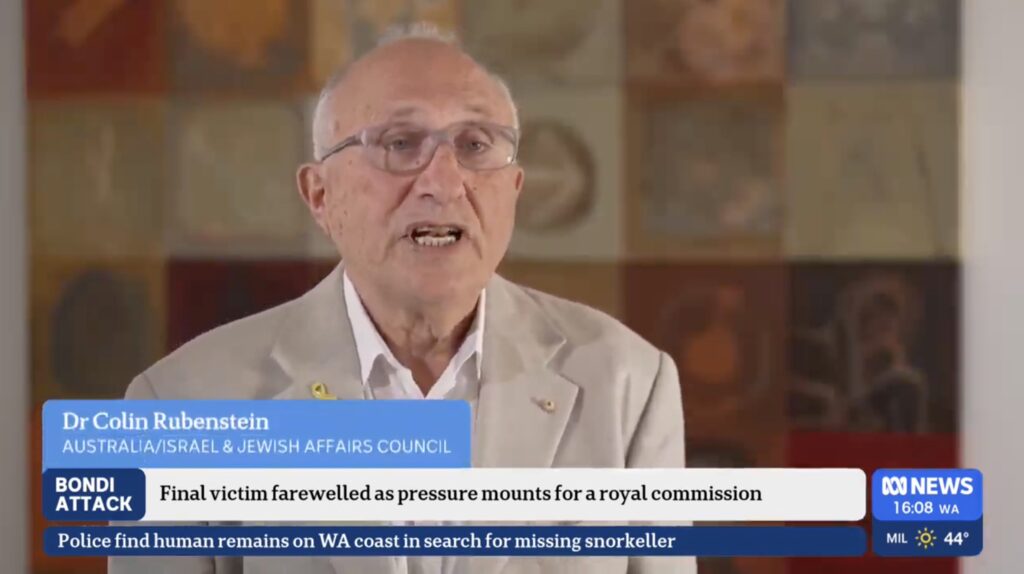UPDATES
The Saudis, the Houthis and the Biden Administration
March 12, 2021 | AIJAC staff
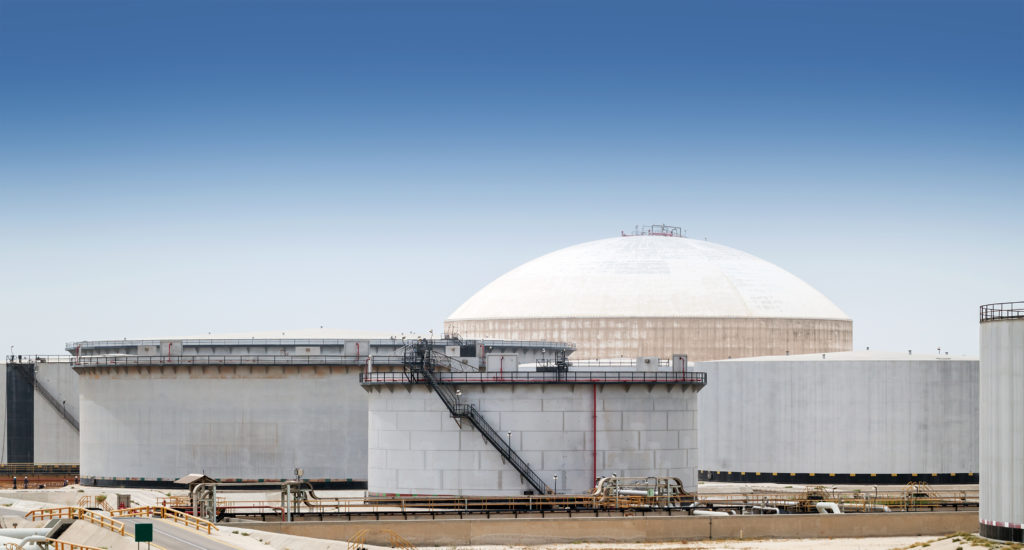
Update from AIJAC
03/21 #02
This Update is focussed on the aftermath of last weekend’s largely unsuccessful missile and drone attack on major Saudi facilities by Yemen’s Iranian-backed Houthi rebels, and how this event fits into the US Biden Administration’s policies toward the Saudis, Yemen and Iran.
We lead with Gulf affairs expert Simon Henderson from the Washington Institute for Near East Policy. He says the attack will cause serious headaches for the Biden White House, amidst its efforts to distance itself from Riyadh. One element Henderson highlights is the likely upward pressure on petroleum prices – and the fact that the most effective counter would be to ask the Saudis to boost production, which the Biden Administration has made it very hard to do because of its policy of distancing itself from the regime. For all the details, CLICK HERE.
Next, we offer top Israeli academic and author Dr. Jonathan Spyer looking at the broader pattern of Iran using proxies to initiate deniable violence against Teheran’s enemies. He says these groups both proclaim complete loyalty to Teheran, and then, when it is convenient, insist that they are homegrown bodies that act independently from Iran. Spyer says that while this gambit has worn thin regarding Hezbollah and its various foreign franchises, it is too often being accepted as plausible with respect to the Houthis, when it should not be. For his complete argument, CLICK HERE.
Finally, American columnist Jonathan Tobin looks at the wider issue of how US policy toward Saudi Arabia might affect the region. He argues that while it might seem obvious that US coolness toward Riyadh may drive Saudi Arabia closer to Israel, and perhaps even lead to the establishment of normal relations with the Jewish state, this is far from a foregone conclusion. Tobin warns especially that if US policy is to force the Saudis to reconcile with Iran, or make a major push towards Israeli peace with the Palestinians, this could mean jeopardising any hope for Israeli reconciliation with more Arab states. For Tobin’s full analysis and call for caution in Washington, CLICK HERE.
Readers may also be interested in…
- Critical of the Biden Administration’s distancing from Saudi Arabia is noted American journalist and author specialising in Saudi Arabia Karen Elliott House. A New York Post editorial makes some similar arguments.
- Lebanon-based journalist Anchal Vohra reports on the growing competition in the Arab world to strengthen strategic, technological, and business cooperation with Israel. Plus, Michael Rubin uses Lebanon’s situation to highlight both the dangerousness and vulnerability of the Iranian regime.
- Top Israeli missile expert Uzi Rubin analyses some worrying new developments in Iranian rocket capabilities.
- An interesting story on how the Israeli Mossad used unchallengeable data to change the perspective of the International Atomic Energy Agency on Iran.
- A good piece on the difficult situation of Palestinian Authority President Mahmoud Abbas in the lead-up to Palestinian elections.
- Some examples from the many stories and comments now appearing at AIJAC’s daily “Fresh AIR” blog:
- Naomi Levin’s piece in the Australian on former Australian hostage in Iran Kylie Moore-Gilbert’s efforts to help the other hostages still left behind in the Islamic Republic.
- An AIJAC video on the far-right threat in Australia – plus a factsheet with more information.
- A short video from recent AIJAC webinar guest Elliott Abrams discussing the Iranian attack on an Israeli cargo ship last weekend.
- Dr. Colin Rubenstein interviewed by Chris Kenny on SkyNews about controversial proposed changes to the ALP platform regarding recognising “Palestine”.
Attack on Saudi oil facility means new headache for Biden
BY SIMON HENDERSON
THE HILL, 08/03/21
When is a failed Iran-instigated attack on Saudi Arabian oil facilities a problem? Answer: When a new administration in Washington is trying to shift away from the Middle East and reduce reliance on oil.
More succinctly, but in jargon, when the market is tight.
In 2019, Iranian missiles and drones hit the Saudi oil processing plant at Abqaiq, where crude is initially cleaned so that it can be loaded onto tankers. The shockingly accurate attack temporarily halved Saudi exports. Yesterday’s attack on the oil infrastructure around the coastal city of Dammam apparently hit only one oil storage tank. The nearby oil export terminal, which handles 15 percent of world supplies, was unscathed.
Of course, as last time, Iran’s fingerprints of responsibility are a little blurred. The Houthi forces that control Yemen have claimed they did it, but truthfulness is not their strong suit. It should become clearer within the next day or so.
The standard oil market reaction in these circumstances is for prices to rise, at least initially. Today, the price has gone above $70. Whereas in 2019 prices quickly slipped back, this time any recovery, at least for consumers, is likely to be slower. American shale oil is no longer quickly available to calm market sentiment. And the Saudis only last week said they were staying with a 1 million b/d production cut, imposed to keep prices high and boost their revenues.

For President Biden and his team, the recent attacks by Iran are creating real headaches, complicating their Middle East policies. (Photo: archna nautiyal / Shutterstock.com).
For the Biden White House, yesterday’s attack is likely to prove a real pain. The Iranian attack occurred just as another couple of B-52 strategic bombers were making a well-publicized, round-trip flight to the Gulf, supposedly to deter Iranian aggression. The willingness to confront Iran is reduced because of the administration’s desire to engage in nuclear talks. And higher oil prices mean more revenues for Tehran’s reduced but still significant exports. A record volume reportedly is going to China.
The better-read officials may well be recalling the response of a British prime minister to a question about what his most troubling problem was. Harold Macmillan, who served from 1957 to 1963, replied: “Events, dear boy, events.” (It sounds less patronizing in English-English.)
Of course, events already have interfered with Iran policy, as evidenced with last week’s air strike on Shia fighters in Syria, a response to attacks on U.S. forces in Iraq. As the Pentagon well knows, “No plan survives contact with the enemy” — attributed to a Prussian military commander in the 1800s.
But it is one thing for the Middle East to continue to be a source of headaches for Washington; it is another when the price of gas rises at the pumps. Eventually oil production, including American shale, should kick in and ease the situation. But this also coincides with the appearance of a post-COVID recovery in the world economy that will have the reverse effect.
What is there to be done? An obvious answer is to ask the Saudis to end their production cutback. But the person with whom the White House needs to speak on that is the de facto ruler, Crown Prince Mohammed bin Salman, known as MbS. Oh dear, this is the person President Biden does not deal with because of a range of issues, including the murder of dissident journalist Jamal Khashoggi.
And it is only Monday.
Simon Henderson is the Baker Fellow and director of the Bernstein Program on Gulf and Energy Policy at the Washington Institute for Near East Policy.
Who bombed the Saudi oil storage yard at Ras Tanura?
BEHIND THE LINES: Houthis provide deniability for Iranian campaign of aggression
By JONATHAN SPYER
Jerusalem Post, MARCH 11, 2021

The latest attack in Ras Tanura – as the latest episode in the wider Saudi-Iran war in Yemen – have everything to do with Iran’s escalating attacks on US allies through proxies (Photo credit: danielo, Shutterstock).
On Sunday, a series of drone and missile attacks was launched at military and oil industry-related facilities in Saudi Arabia. Among the sites targeted was the oil storage yard at Ras Tanura, the site of the world’s largest offshore oil-loading facility. A refinery is also located in this area. A missile was launched at a residential compound maintained by the Saudi state oil company Aramco in the area of Dhahran. Taking responsibility for the attacks, the Yemeni Ansar Allah Houthi movement also claimed to have launched attacks on military targets in the Saudi cities of Dammam, Asir and Jazan.
These attacks were the latest episode in a process of escalation currently underway in the region. In it, the Iranians are mobilizing both their own forces and the full range of their proxies in a campaign of attacks against the United States and its allies. The attacks on a US facility at the Erbil Airport in northern Iraq on February 15, the rockets fired on US personnel at the Balad Airbase on February 20, the placing of limpet mines on the Israeli-owned cargo ship MV Helios Ray in the Gulf of Oman on February 26, the rockets launched against US facilities at the Ayn al Asad Airbase in Iraq’s Anbar Province on March 3, and the current Houthi offensive on the city of Marib all constitute elements of this offensive campaign.
The claim by the Houthis of responsibility for the latest attacks on Ras Tanura and Dhahran is of particular note. Houthi military spokesman Yahya Sarea, quoted by Al Jazeera on March 7, said the organization fired “14 drones and 8 ballistic missiles” at the above-mentioned targets in a “wide operation in the heart of Saudi Arabia.”
The array of proxy political-military organizations maintained by Tehran across the region is useful, among other reasons, for the cloak of deniability they afford the Iranians in their assertion of power across the Middle East. When it suits Iranian purposes, such organizations as the Iraqi Kata’ib Hezbollah and Asa’ib Ahl al-Haq, the Syrian Quwat al-Ridha group and others openly proclaim their loyalty to the Islamic Republic and its system of government. At other times, they present themselves as independent actors, merely inspired by the Iranian example.
The level of credible deniability available to a particular proxy tends to wax and wane with time, however. The Lebanese Hezbollah group, for example, is straightforwardly a creation of Iran’s Islamic Revolutionary Guards Corps (IRGC). This can be discerned from the movement’s own history, from its iconography, and from the statements of its own leaders. Hezbollah Secretary-General Hassan Nasrallah, for example, in mid-2018, was reported by Iranian media as saying the Iranian system of government vilayat-e faqih, (guardianship of the jurist) was above the Lebanese constitution, and its orders binding.
Yet for many years, the fiction of Lebanese Hezbollah as an independent, home-grown, home-directed organization was dutifully maintained in most media coverage and research work on the organization, and in the perceptions of Western governments, as informed by their local representatives in embassies across the region. Attempts by Israeli or other voices to point out the obvious flaws in such a perception were dismissed as simplistic or propaganda.

Iranian denials of responsibility for the actions of the Houthis are more credible than the claim that Hezbollah, above, acts independently – but only slightly. (Photo: Gabriele Pedrini / Shutterstock.com)
Today, perceptions regarding Lebanese Hezbollah have shifted somewhat. There are a number of reasons for this. First, the broader network of “Hezbollah” franchises in other countries (Iraq, Syria, Bahrain) is more widely known. Second, Lebanese Hezbollah’s activities on behalf of the Assad regime in the Syrian civil war have exposed its role as an instrument of Iranian regional policy in a way that is difficult for all but its most ardent defenders to dismiss.
THE YEMENI Ansar Allah, or Houthi movement, however, largely retains the portion of deniability that other Iran-linked or Iran-controlled groupings have lost. The Iranian preference for using the Houthis as the preferred address to which current attacks on Saudi Arabia can be attributed might derive from this perception of the movement. Any designation of the Houthis as an Iranian proxy is still often presented as simplistic, failing to account for local realities and conditions, much the way that Lebanese Hezbollah was seen before 2014.
Is there any basis to the notion that the Houthis, in contrast to the various Hezbollahs, are a genuine local movement, pursuing independent objectives outside of the framework of the Iranian regional project?
There is some basis for this claim. Unlike the various Hezbollah franchises, Ansar Allah is not a creation of the Revolutionary Guards per se. It was not established directly by IRGC cadres, as were the Hezbollahs of Lebanon and Iraq. Rather, the movement derives from local initiatives emerging in the 1990s, opposed to the US invasion of Iraq, hostile to Israel and to Jews, and influenced by the Shia political Islam of Mohammed Hussein Fadlallah. The Houthis and the communities from which they draw their support are adherents to the Zaidiyyah branch of Shia Islam, the oldest Shia trend. The Iranians and the Lebanese, Syrian and Iraqi Shia who follow them, by contrast, are Twelver Shias.
But the differences are of degree, not of kind. The IRGC officers who presided over the establishment of Hezbollah franchises in Lebanon and Iraq organized and brought together young Shias inspired by the Iranian revolution and regime. The IRGC in Yemen has played a similar role, albeit interfacing with more crystallized prior existing organizations.
Evidence of active Iranian support for the Houthis has been available for at least a decade. In 2012, an Iranian vessel carrying surface-to-air missiles, Katyusha rockets, RPG-7s and other ordnance was seized en route to Yemen. Then-secretary of state John Kerry in 2015 confirmed in a public statement that the US was aware of Iranian support for the Houthis. Support appears to have increased dramatically over the last half decade, as the Houthis have launched their bid for power in Yemen and captured the capital Sana’a.
But while Houthi military capabilities have undoubtedly improved thanks to Iran in recent years, the perception of the group as not dependent on Tehran appears to remain a major asset for the movement in the eye of its patrons. The Houthis, for example, were the first to claim responsibility for the strategic attack on the Saudi Aramco oil plants in Abqaiq and Khurais in September 2019. A UN investigation later cast doubt on the claim. It noted that the drones and land-attack cruise missiles used in the attack had a sophistication probably beyond the reach of the Houthis. Later, Reuters reported that Iranian Supreme Leader Ali Khamenei had ordered the attack.
A similar logic may well apply to the current round of attacks on Ras Tanura and other facilities. The Houthis are without doubt supported by Iran. But is it likely that the sophisticated drone and ballistic missile attacks that Saudi Arabia is currently experiencing are the work of a North Yemeni militia, deciding of its own accord to carry out acts of war against a US-aligned state? The balance of probabilities must lean toward a more direct Iranian role, at the decision-making and very possibly also at the operative level. The (vital) role of the Houthis, meanwhile, is political. They enable Tehran to avoid any process of retribution – for as long as the fiction is accepted.
Will Biden’s moves bring the Saudis closer to Israel?
Obama’s push to appease Iran propelled the Arabs into the arms of the Jewish state. There may be limits, however, to how far the Saudis may embrace Israel

Will the Biden Administration’s deliberate distancing from Saudi Crown Prince Mohammed bin Salman, pictured, cause his government to draw closer to Israel? (Photo: Cubankite / Shutterstock.com)
President Joe Biden’s foreign-policy team has talked a lot about re-emphasizing diplomacy and re-engaging with allies after what they claim was the trashing of old friends during the presidency of Donald Trump. But that doesn’t appear to include America’s two most important allies in the Middle East: Israel and Saudi Arabia.
The Israelis have been reassured that Biden still regards their security as important and that any disputes between the two countries will be handled behind the scenes, rather than highlighted in an effort to achieve more “daylight” between the two allies, as was the case with the former President Barack Obama. Still, Israelis know that the closeness that existed between them and the Trump administration is a thing of the past.
But that’s a far cry from the unsubtle message about downgrading relations with the Saudis that Washington has been delivering.
The justification for this decision centers on human rights and the brutal nature of the Saudi regime. The report released last month by the Director of National Intelligence about the murder of journalist Jamaal Khashoggi by the Saudis tied the operation directly to Crown Prince Mohammed bin Salman, known as MBS. The killing of Khashoggi in its Istanbul consulate was remarkable primarily for the brazen nature of the crime rather than for revealing anything new about the authoritarian nature of the Saudi government.
The report gives a boost to the chorus of Democratic critics of the U.S.-Saudi relationship who believe that the murder, as well as the brutal war being waged in Yemen, requires Washington to downgrade ties with Riyadh. But even for those who care about human rights and oppose the notion that America should be indifferent to the internal policies of those governments with which it does business, it’s not that simple.
Kicking the Saudis to the curb is inextricably tied to the question of what to do about Iran—a nation that is arguably an even worse human-rights offender and an aggressive Islamist nation that poses a threat to the entire Middle East with or without the nuclear weapons they seek. Just as complicated is the fact that hostility to the Saudis undermines Trump’s main foreign-policy achievement: the Abraham Accords in which a growing number of Gulf states and Muslim countries have been normalizing relations with the State of Israel.
That leaves friends of Jerusalem wondering how a cooler relationship between Washington and Riyadh will impact the push to expand the trend of normalization to the rest of the Arab world. In particular, it’s not clear whether or not the American decision to try and create another rapprochement with Iran will bring the Saudis and other Arab nations closer to Israel or drive them apart.
The optimistic view from an Israeli perspective is to remember that the warm ties between Israel and the Arab states weren’t merely a creation of Trump. It’s fair to say that although the Saudis have been looking for an exit ramp from the no-win confrontation with Israel for the last two decades, Obama’s appeasement of Iran pushed them into Israel’s arms. Faced with the reality that the United States was ignoring their interests and security by empowering and enriching Iran, they naturally turned to the only nation in the region that shared their antipathy to the genocidal terrorist-supporting regime in Tehran.
Biden’s foreign-policy team is not opposed in principle to Arab and Muslim nations deciding to no longer be held hostage to Palestinian intransigence and to recognize that they have mutual security and economic interests with the Jewish state. Yet Biden staffers have little interest in fostering such ties as long as they are based on a common hostility to an Iranian regime with which they want to re-engage.

The 2018 Saudi murder of dissident journalist Jamal Kashoggi in their Istanbul consulate was notable more for its brazenness that for telling us anything new about the ugly nature of the Saudi regime (Photo: Wikimedia Commons | License details)
As was the case in Egypt, where a desire to advance the cause of democracy led Obama to undermine the regime of longtime dictator Hosni Mubarak in 2011—and thus set the stage for a Muslim Brotherhood takeover that was ultimately overthrown by a popular military coup— it’s a mistake to think that the United States has more choices than either an authoritarian regime that his friendly to the West or an Islamist one that is not.
That’s not only true with respect to the internal governance of the Arabian Peninsula but also in terms of the regional balance of power. In damning MBS and recalibrating relations by ending weapons sales to the Saudis and their allies in the United Arab Emirates (the latter nation that was promised advanced jets as part of its decision to solidify ties with Israel and a pledge that Biden has already reneged on), Biden’s advisers may claim to be standing up for human rights. But undermining these American allies merely advances the interests of Iran, a tyrannical theocratic regime with a human-rights record—both in terms of internal oppression and its brutal record of adventurism abroad aiding the barbarous Assad regime in Syria, their murderous Hezbollah terrorist auxiliaries in Lebanon or the ruthless Houthis in Yemen—that is arguably far worse.
What can the Saudis and other Arab states do to protect their interests in the face of America abandoning them?
As some sources told JNS, the breach with the Americans could draw the Saudis and other Arab states closer to Israel. Indeed, a desire to make things right with the Americans might impel Riyadh to break down and recognize Israel itself, rather than persist with the current status in which the two countries are actively allied but do so without formal recognition.
It’s far from clear that’s the most likely outcome.
As much as MBS and the Saudis value their relationship with Israel and regard it now as essential to their security, there is a big difference between them and the other Arab countries. The Saudi royal family sees its legitimacy as rooted in its status as the guardian of Islamic holy places in Mecca and Medina. Recognizing the Jewish state makes sense from a realpolitik perspective, but not from a religious one since such a move would render the Saudis even more vulnerable to attacks from Islamist critics.
There’s also the possibility that Washington won’t merely punish the Saudis but actively pressure them and the other Gulf states to make their peace with Iran. Indeed, muscling them into bowing to American demands may be a much higher priority for the administration than strong-arming Israel into making concessions to a Palestinian Authority that even Washington’s most ardent two-state solution advocates know won’t make peace.
While it’s hard to imagine such a turn of events right now, stranger things have happened in the history of the Middle East.
Downgrading relations with the Saudis might bring them even closer to Israel and further solidify an Israel-Arab alliance against Iran that could be powerful enough to deter Iranian aggression and transcend Washington’s feckless efforts to appease Tehran.
But if the Biden administration, despite its claims of support for the Abraham Accords, decides that it wants to actively trash them so as to assist its agenda of making nice with Iran or try to bring the dead-in-the-water peace process with the Palestinians back to life, it’s not inconceivable that they could wind up sabotaging the greatest advance towards Middle East peace in decades.
Seen from that perspective, Biden’s swipe at the Saudis isn’t so much a blow struck for human rights as possibly a devastating defeat for the cause of genuine peace between Jews and Arabs.
Jonathan S. Tobin is editor in chief of JNS—Jewish News Syndicate.
Tags: Hezbollah, Houthis, Iran, Israel, Middle East, Saudi Arabia, United States, Yemen

